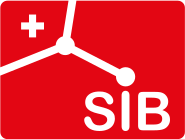Spring School Bioinformatics and Population Genomics - May 2016
Section outline
-
Spring School Bioinformatics and Population Genomics
Leukerbad 29 May - 2 June 2016
This page is addressed to registered participants. To access course description and application form (now closed), please click here.
For any assistance, please contact training@sib.swiss
-
Sunday 29 May
>17:00 Participants arrival
18:30 Informal welcome and presentation of the event
19:00 Dinner
20:30 Ice-breaking meeting, participants introduce themselves, drinksMonday 30 May: Ancient DNA and Adaptation (1)
09:00 Lecture 1.1: Detecting adaptively introgressed regions in present-day human populations (Emilia Huerta Sánchez)
10:20 Coffee break
10:50 Lecture 1.2: Tracking genomic, epigenomic and community changes with ancient DNA time capsules (Ludovic Orlando)
12:15 Lunch
14:00 Practicals 1.1
15:45 Coffee break
16:15 Practicals 1.2
18:15 Free networking/bath
20:00 Dinner
21:30 Bar/armchair talk (topic not defined yet)**armchair talk are informal talks (no powerpoint, no classroom), where 1 or more people speak about a particular aspect of their career
Tuesday 31 May: Evolution of gene expression
09:00 Lecture 2.1: Evolution of fire ant social chromosomes (Yannick Wurm)
09:45 Lecture 2.2: Impact of gene expression patterns on molecular evolution (Marc Robinson-Rechavi)
10:30 Coffee break
10:50 Lecture 2.3: On the impact of genetic on molecular and organismal (immunological) variation (Bart Deplancke)
12:15 Lunch
14:00 Practicals 2.1
15:45 Coffee break
16:15 Practicals 2.2
18:15 Free networking/bath
20:00 Dinner
21:30 My favourite package participants talkWednesday 1 June: Demography and social activity
09:00 Lecture 3.1: From Population Genetics to Demographic Inference: How genomes help us understand human history (Stephan Schiffels)
10:20 Coffee break
10:50 Lecture 3.2: Demographic inference from NGS data based on the site frequency spectrum: Advantages and pitfalls (Laurent Excoffier)
12:15 Lunch
13:45 Practicals 3.1
15:45 Social activity (Leukerbad Therme, or Sport Arena)
19:30 Dinner (Raclette)
21:30 Bar/armchair talk: "Women in science" by Beth Shapiro and Emilia Huerta Sànchez and Philine FeulnerThursday 2 June: Ancient DNA and Adaptation (2)
08:50 Lecture 4.1: Speciation genomics: beyond a fish perspective (Philine Feulner)
10:15 Coffee break + check out
10:40 Lecture 4.2: Inferring admixture and selection using ancient genomes: two case studies (Beth Shapiro)
12:00 Lunch
13:00 Practicals 4.1+4.2
14:50 concluding remarks
15:00 End of the event -
Venue
The address of the Spring School is: Hotel Regina Terme, Klibenstrasse 19, CH 3954 Leukerbad, Switzerland. Google maps location.
To get there by public transportation, from all directions, you need to arrive at Leuk SBB (Station) by train. Then to Leukerbad by Bus 471 and then a second Bus (481) to stop "Leukerbad, Diana". Finally 1-2 minutes walk and you deserve a XLarge drink.
To plan your departure on Thursday 2 June, this is a timetable from Leukerbad Diana to Leuk and then to Geneva Airport or Zurich Airport:
Leukerbad Diana -> Leukerbad Station (bus): 15h17 -> 15h24
Leukerbad Station -> Leuk station (bus): 15h48 -> 16h22
*Leuk Station -> Geneva Airport (train): 16h24 -> 19h09 (change train in Sierre)
** Leuk Station -> Zurich Airport (train): 16h43 -> 19h16 (change train in Visp)
Link to Swiss trains website: http://www.sbb.ch/en/home.html
There are car parkings at the hotel, some are free. Please contact them (info@reginaterme.ch) directly for more information.
Accommodation
If you wish to share your room with a colleague, please send an email to staromics@cuso.ch and gregoire.rossier@sib.swiss with his/her name. If not, we will attribute you a room mate (same gender).
Except for extras, you will not be charged for the rooms, which are included in the registration fees.
Check-in will be on Sunday before the event starts. Check-out will be during the morning of the last day.
Sports
As there is the possibility to take advantage of thermal bath in the hotel, as well as to do a hike in the mountains, do not forget to bring a swimsuit as well as good walking shoes.
-
Basic understanding of working with command line tools on Linux or Windows-based operating systems.
If you do not feel comfortable with UNIX commands, please take our UNIX fundamentals e-learning module. Alternatively, you have the opportunity to attend our next "First Steps with UNIX in Life Sciences" that will take place in Geneva, 24 May 2016.
Additionally, students need to be familiar working with R. We recommend using the swirl() library from http://swirlstats.com to learn autonomously: * follow the "R programming" self-led course (you can skip the sections "Simulation" and "Dates and Times") * follow at least the ggplot section of the "Exploratory_Data_Analysis" swirl course.All software and data will be packed in a virtual machine, you need to have VirtualBox installed on your computer. Please download and install the latest version for Mac OS X or for Windows. The virtual image can be downloaded here. It requires a password after a few minutes without usage. This password can be found in the Virtual Machine Installation Guide just below.
If you are not comfortable with the installation, please download our quick guide below. There might be issues to run the machine, especially if you are using Microsoft Windows 10. In this case, please read carefully the document "issues-VM" below.
Important: you need a laptop with minimum of 4 GB memory and 25 Go free space.
